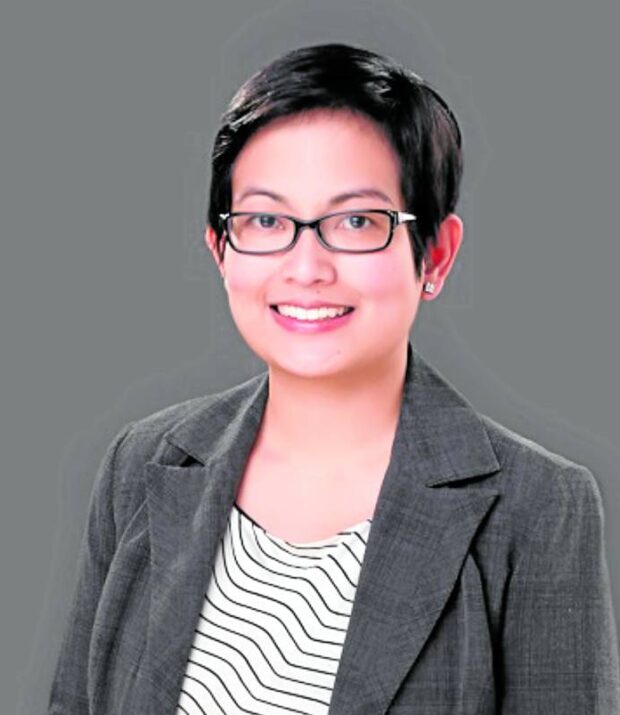Think tank: Marcos lost a key economic reformer

Cielo Magno —CONTRIBUTED PHOTO
President Marcos lost a key reformist in his administration with the forced resignation of Finance Undersecretary Cielo Magno over policy differences, according to a private think tank advocating economic and governance policies to promote Philippine development.
On Friday, a day after Magno announced that she was “forced to resign,” Executive Secretary Lucas Bersamin accused her of being “clearly set on maligning” the Marcos administration from the beginning, prompting Malacañang to “terminate her appointment.”
He said in a statement that Magno “has been against the policies of this administration and made it known to the public on social media long before the President even assumed office.”
Magno, who was undersecretary for Fiscal Policy and Monitoring Group, last week posted on her Facebook page a chart illustrating the law of supply and demand as a criticism of the administration’s decision to artificially lower rice prices by setting a P41 cap on regular-milled rice and P45 on well-milled rice.
“The administration has lost a reformer with technical expertise who can reach out to sectors with varying persuasions—politicians, investors and businessmen, people’s organizations, academics and the international community,” said Action for Economic Reforms (AER), a private think tank advocating economic and governance policies to promote Philippine development.
It said that Bersamin’s allegations against Magno were “baseless and unfair.”
The group, which includes reform-minded public intellectuals, academics and civil society leaders, said Magno was professional and competent.
Among her recent tasks was to help craft pension reforms for the military and uniformed personnel to prevent what Finance Secretary Benjamin Diokno said was a “fiscal collapse.”
She also pushed for reforms in the mining fiscal regime to generate additional revenue and clear uncertainties deterring investments and was working on health taxes to fund the President’s food stamp program and other social protection measures.
She also worked for the reentry of the Philippines into the globally prestigious Extractive Industries Transparency Initiative and improvements in the fiscal incentive rationalization system by adopting firm rules on the value-added tax.
“All this translates into better economic performance and investor confidence. Thus, Undersecretary Magno’s reform effort, in line with the President’s statements and Finance Secretary’s directives, are in the best interest of the country and of the Marcos administration,” AER said.
Magno, 45, a former activist who served as chair of the University of the Philippines (UP) Student Council in 1999, said “it was not easy to say yes when I was asked to join government.”
She made no secret of her support for former Vice President Leni Robredo in last year’s election when she started work at the Department of Finance in August last year.
“I consulted family members and friends. In the end, I concluded that the agenda of the people remains the same, regardless of who is in Malacañang. We serve the interest of the people, not the interest of politicians,” Magno told the Inquirer.
Pay P203-B estate tax
“If the government bungles its job, it is the people who will suffer. We do our part to serve the people,” she said.
In one television interview shortly after the elections, Magno said she agreed with then President-elect Marcos’ statement that the country’s tax administration system should be improved but that Marcos himself should take the lead in paying taxes, referring to his family’s unpaid P203-billion estate tax.
“What kind of credibility will you have in collecting taxes from the people if your leaders are themselves not paying taxes,” the then economics professor said.
AER coordinator Men Sta. Ana said policy disagreements or differences were to be expected in any administration and constructive criticisms should be managed well.
But the lack of tolerance for different opinions on the part of “some quarters” in the administration leads to frustration among reformers in government, he said.
Reforms are “not about political partisanship” but those that will benefit society and the majority of the people, Sta. Ana said, adding that these would not wait for any specific administration to take office.
“Those reforms cry out to be done … regardless of who is in power. That’s the attitude of Cielo and other reformers,” he said.
Return to previous job
Magno said she would be returning to her previous job as an economics teacher at the UP School of Economics where she taught development economics, environmental economics, human resource cconomics, institutional economics, microeconomics, public economics.
She earned her doctorate degree from Northeastern University in the United States. She got her bachelor’s degree in business economics and master’s degree in economics from UP.